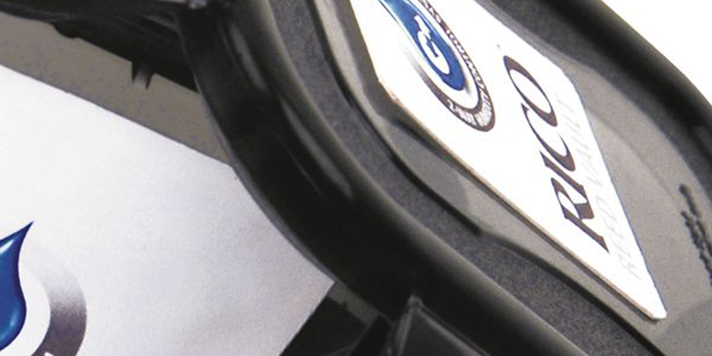Established in 1928 by Joseph Rico, Rico is the most popular reed and woodwind accessory company today having grown from receiving 30 kilos of cane its first year to about 300,000 kilos in 2005. Now owned by Jean-Francois Rico, the grandson of Joseph Rico, the company continues to see increasing success worldwide in its partnership with D’Addario. [Since the original time of this interview, Rico Reeds has become D’Addario Woodwinds.]
Targeting all clarinet and saxophone players, from students to professionals in the classical and jazz genres, Rico offers a variety of products to satisfy a wide customer base. Those who use Rico reeds usually find that the reeds are very consistent and that at least 80% of the reeds in a box are great reeds.
Rico also has several new products that will be available in the near future including a new classical clarinet reed, a new jazz saxophone reed, an improvement on all brands of reeds because of new equipment and better cane selection, and a book written on the history of reeds and cane for all major reed companies which became available in France in 2006.*
THE INTERVIEW WITH JEAN-FRANCOIS RICO:
WHO ARE YOUR TARGETED CONSUMERS?
“Pretty much everyone. From students to professional musicians from every style ranging from classical to jazz.”
WHAT PRODUCTS DO YOU OFFER THAT WOULD BE APPEALING TO YOUNG MUSICIANS? WHAT KIND OF FEEDBACK DO YOU GET? WHAT KIND OF FEEDBACK WOULD YOU LIKE TO HAVE? IS YOUR WEB SITE SETUP TO RECEIVE FEEDBACK?
“For Classical Musicians, a student would start using Regular Rico (the orange box) then move to the Grand Concert then the Grand Concert Evolution, for clarinet players Mitchell Lurie. There is a new classical reed for clarinet in progress that is not yet available.
“For Jazz Musicians, a student would start using Rico Regular (the orange box) then move to Rico Royal, then La Voz and then the Jazz Select reeds.
“The Plasticover reeds are meant for marching band or beginners because they have a better durability than the normal reeds and are less likely to warp.
“People like our products because our reeds are very consistent and our customers find that 80% of reeds in a box are good.”
WHAT DO YOU FEEL ARE YOUR MOST EFFECTIVE METHODS OF ADVERTISEMENT?
“Our most effective methods of advertisement are participating in international shows, visiting schools and conservatories, giving away samples and talking to people, and explaining reed making process.”
WHAT MADE YOU DECIDE TO BE THE ONE TO CARRY ON THE FAMILY COMPANY?
“My Grandfather was one of the founders – Joseph Rico. I was raised in the environment. At 22 years old I moved to California and spent three years working at Rico learning how reeds are made, the need for good quality material cane, and then after 3 years I moved to France and took over purchasing and growing cane.”
WHAT ARE QUALIFICATIONS TO BE EMPLOYED? IS THERE POTENTIAL EMPLOYMENT FOR YOUNG MUSICIANS? INTERNSHIPS?
“Musicians who preferably play clarinet or sax qualify to be employees. There is potential employment for people who are ready to play reeds and deliver feedback for development of new products or improvements on old.”
ADVICE FROM RICO:
“A common mistake that reed players tend to make is to throw a reed on a mouthpiece and play it until it no longer has any life and then do the same to the next reed. You can get the fullest potential from a box of reeds by breaking them in. When you buy a new box of reeds, you need to take them out and play them each for five to ten minutes and then give them a break. If you break the reeds in slowly and rotate which reed you are using rather than always using just one, the reeds will play better and last longer.”
MORE INFORMATION:
If you want to get in touch with Rico, you can visit their web site and drop them an email about what you think of their reeds or various other music products. The web site is setup to receive feedback, but only in English. They are working on creating a multilingual web site, which is vital because they are an international company. Rico is based out of Sun Valley, California.
*I am not certain as to whether or not this book was published (the interview was conducted prior to 2006). If anyone knows the link or if they could verify its publication, I would greatly appreciate it.
[template id=”182″]



